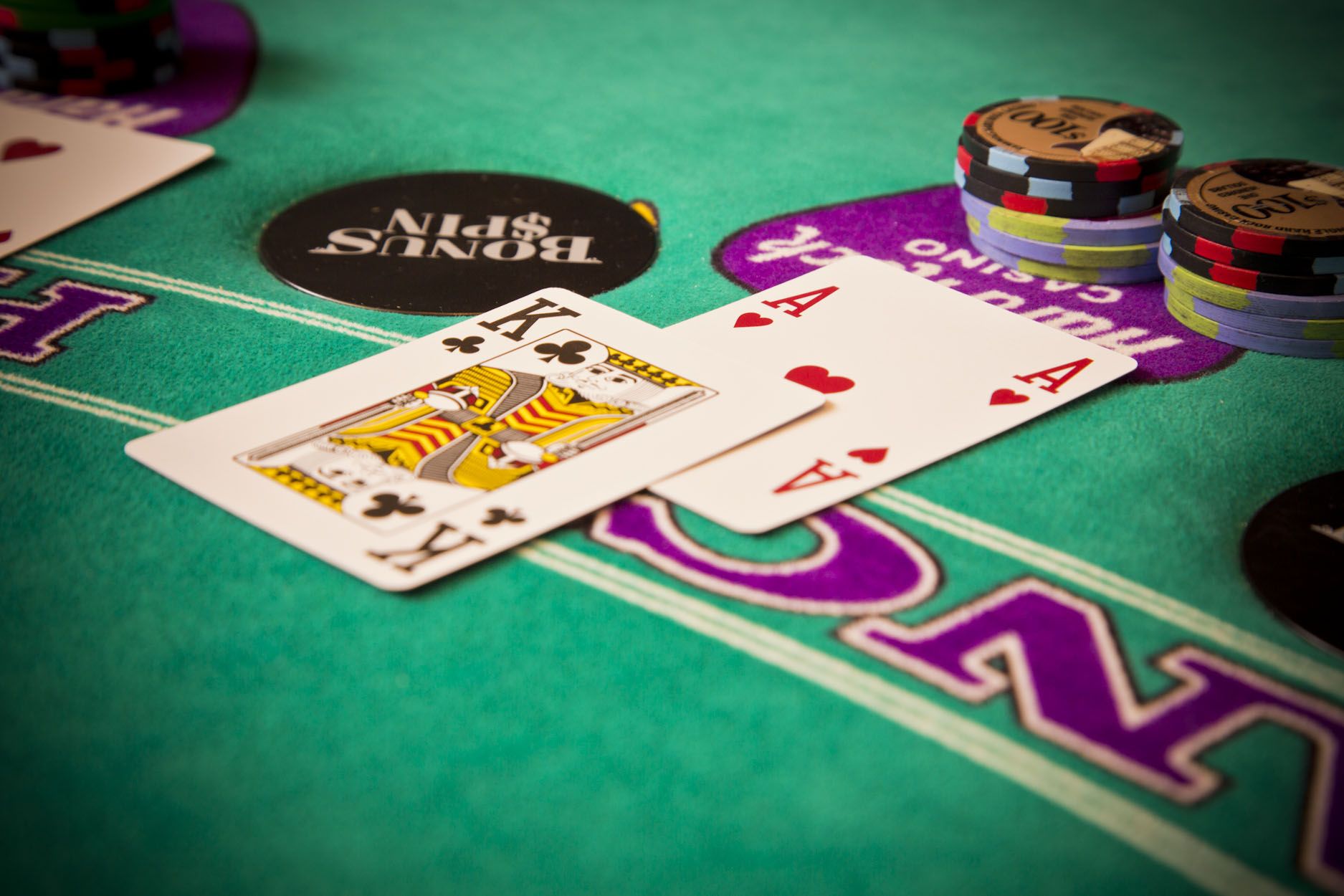
Gambling in various forms has been a popular pastime in nearly every civilization throughout history. Playing cards originated in Asia sometime before 900 C.E. The Chinese are thought to have originated card games when they began shuffling paper money into various combinations. The European cards decks also grew out of the tarot decks used for divination and the modern four suites came from the tarot deck. The standard 52 card deck used today in the U.S. was originally referred to as the “French Pack” in the 1600’s, and was later adopted by the English who brought them to the United States.
The history of the card game now known as blackjack is unclear. Most historians believe it developed from French games such as “chemin de fer” and “French Ferme”. Blackjack really became popular in French casinos around 1700 where it was called “vingt-et-un” (“twenty-and-one”) and has been played in the U.S. since around the 1800’s. The original idea of “black jack” was that if a player gets a Jack of Spades and an Ace of Spades as the first two cards, the player wins a bonus amount.
As long as gambling has been around, there have been people opposed to it. In 1910, Nevada (believe it or not) made it a felony to operate any type of gambling game. However, in the middle of the depression, in 1931, Nevada re-legalized casino gambling and black jack became one of the primary games offered to gamblers. Casino gambling did not become legal in Atlantic City until 1978. As late as 1989, only the two states of Nevada and New Jersey had legalized casino gambling. Since then, casinos have grown hugely in popularity because many Native American tribes opened casinos on reservations throughout the country. In addition to the United States, countries operating casinos include France, England, Monaco and several Caribbean islands. Casinos are also common on cruise ships.
The idea of a basic strategy for winning at blackjack did not become organized until the 1960’s. For many previous decades, each player used a different combination of superstitious beliefs about how the hand should be played, combined with personal strategies based on experience. Because of this unstructured approach, the casinos reaped tremendous per capita profits from the blackjack tables.
The first published effort to apply mathematical principles to blackjack was in 1956. Mathematician Roger Baldwin published a paper in the Journal of the American Statistical Association entitled “The Optimum Strategy in Black Jack”. That paper explored the probability and statistics in the blackjack game and developed a theory on how a player could reduce the house advantage. It was a dry and highly intellectual paper published in a scientific journal, so it did not get much press and most gamblers continued to use their own practices to try and win.
In 1962, Professor Edward O. Thorp took Baldwin’s discoveries of probability and developed the first card counting techniques. He published his results in a mass-market book called “Beat the Dealer”. Players, always eager to discover an edge, quickly made the book a New York Times Best Seller. The casinos, however, also read the strategies advanced in the book, and a number of casinos changed their blackjack rules, giving them an even greater advantage than they had previously enjoyed. That backfired though, as people refused to play under the new unfavorable rules. Responding to the profit decline, casinos quickly reverted back to the original rules.
In the long run the popularity of Thorp’s book ended up being a windfall for the casinos. The blackjack tables attracted scores of people who were convinced they could “beat the dealer.” Thousands of gamblers came to the casinos with new confidence only to end up losing at nearly the same rate at which they had been losing before “Beat the Dealer” was published. Unfortunately, Thorp’s “Ten-Count” system was difficult to master and many players didn’t really understand its complexities. A few did understand it because they out in the time or effort needed to master it. Stories of their successes fueled more books, more systems, and more optimism that the dealer really could be beat. Still, casino profits mounted.
Black jack remains a very profitable game for casinos. On the other hand, Black jack also remains the one casino gambling game that the player has the best chance of winning.
